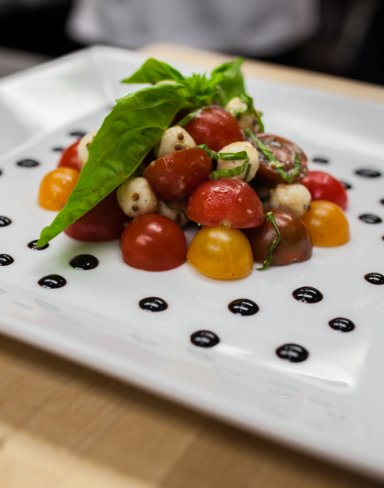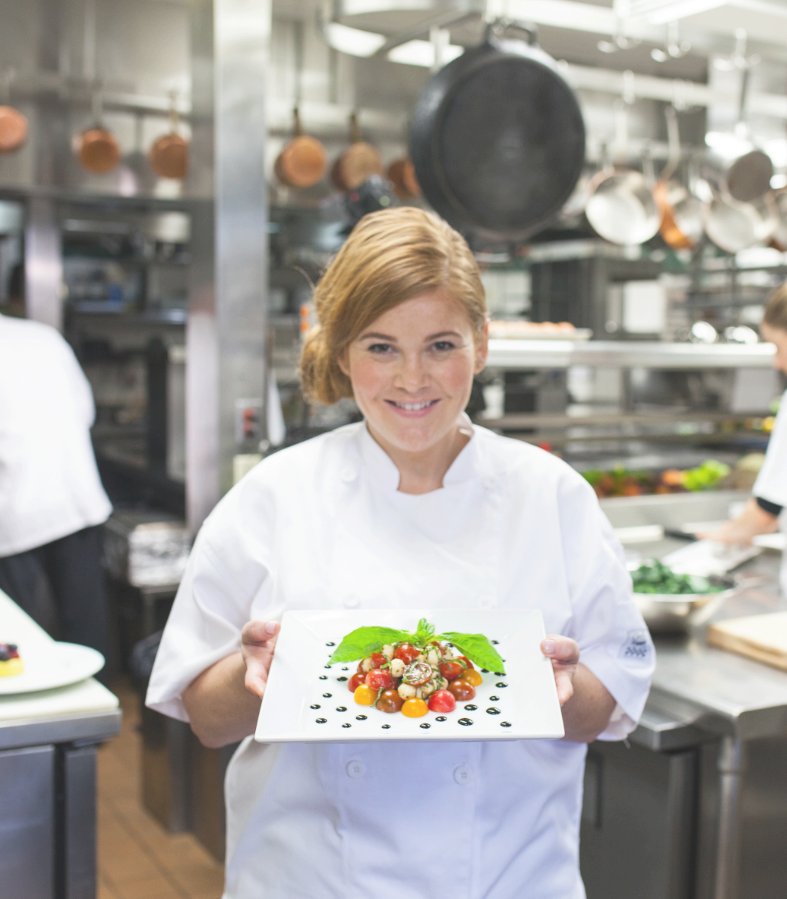
SIGN UP FOR CLASSES AND SAVE | REGISTRATION IS NOW OPEN
CASA Culinary School Endorsements

In speaking of what’s lacking with graduates of conventional culinary programs, Bill Hennigan has quite a lot to say. “They are broke and unhappy, especially when they realize they have to take on three jobs just to pay their student loans. “I started out in this industry part time while studying electronics in college. I went to the school of hard knocks, and so when I look at people’s resumes, I look at their experience way more than where they went to school. I believe CASA’s mentorship apprenticeship approach is where the new bar is going to be set in the near future.”
— Bill Hennigan, Maître d’ and Restaurant Manager at Mission Inn Resort and Spa, Riverside, California; Wine Spectator Grand Award winner; Keynote Speaker, U.S. Fancy Food Show 2007, San Francisco, California

“Traditional culinary education to me is the apprenticeship-mentorship approach. This is the way our culinary industry started out. I believe the mentorship approach to culinary education is a sound one. The profit and loss statement of every culinary operation looks to productivity and efficiency as its number-one priority. Having to re-teach culinary graduates who have not received sufficient on-the-job training is not only inefficient but also costly and time-consuming.”
Learn more about becoming a professional chef in Los Angeles.
— Bill Bracken, Owner of “Bracken’s Kitchen” Food and Beverage Consulting, Los Angeles, California

On apprenticeship (externship) from personal experience after having the distinction of learning under Joachim Splichal of Patina in Los Angeles: “Being a product of an apprenticeship program, I cannot say enough about it. You can’t be a great chef until you’ve done the job for a while in a real kitchen with (and know) the real pressures of the culinary industry.”
— Hany Ali, Executive Chef of Marriott Anaheim Suites, California; winner of Food and Wine’s Spectator Award

“I believe CASA provides a cutting-edge approach to culinary education. Real-world experience is what students need. With the number of students enrolling in traditional culinary schools, the ratio of students to instructors is being stretched to the point of reduced efficiency. One can learn from books, but real experience is gained through hands-on work.”
— Daniel Fitzgerald, Culinary Arts Instructor at Los Angeles Unified School District 2000-Present; Former Sous Chef at the Marriott Marquis, New York City

“I fully endorse the mentorship/apprenticeship approach to culinary education. On-the-job experience is very important to me; it’s the way I prefer to train my kitchen employees since I learned that way. A culinary degree is nice to have but traditional culinary schools are very expensive and the cost of education is out of reach for many people.”
— Chef Murat Day, CEC, WCC, AAC, Culinary Arts and Management Instructor, Food and Beverage International Corporate Consultants Owner, San Marcos, California

“I’m an outspoken critic of traditional culinary schools. I believe the degree education offered at these schools has become very watered-down. After spending many years in education, I still truly believe that no one can teach our craft and skills in a mainly classroom-style setting. As the executive chef of one of the largest culinary operations on the East Coast, I see firsthand the liabilities that stem from a classroom-focused culinary education, where the cost is high and the hands-on experience limited.”
— Raimund Hofmeister, CMC, Professional Chef, Head of Culinary Operations, Martin’s Caterers, Baltimore, Maryland and Washington, DC

In speaking of the importance of learning on the job: “It is quintessential, basic and the only real way to learn our profession. All workers are students, but not all students are workers. The lesson must come with the examination.”
— Four Seasons Purchasing Manager Michael K. McCarty

“As a mentor apprentice (extern) prodigy myself I can’t say enough about this approach to culinary education. It’s the sink or swim mentality that gives young chefs the opportunity to achieve their goals in a much more efficient manner.”
— Chef Joseph Friel, Executive Chef at Beau Rivage Hotel Resort and Casino, Biloxi, Mississippi

“When I heard about CASA’s approach to culinary education with on-the-job experience, I was blown away. The use of the culinary techniques and cooking methods, day in and day out, from one scenario to the next, is the best way to learn.”
— Chef Troy Artis, Owner/ Operator of Chef Troy Personal Chef and Catering Services, Los Angeles, California

“I went to the Culinary Institute of America in Hyde Park, but learned just as much during my externship at the Four Seasons Hotel in Newport Beach. Cooking in the trenches of a real, cutting-edge kitchen provides both experience and confidence.”
— Chef Martin Gilligan, CEC, MCFE, American Culinary Federation’s “Chef of the Year 2005,” Los Angeles, California

On the topic of mentored-apprenticeship (externship) in the culinary arts: “I think it is about time that this approach to culinary education came to the United States. I started in an apprenticeship in France when I was 14 years old. I had no formal culinary school training. Apprenticeship programs were the only thing offered and I feel that they’re the best way to go.”
— Retired Chef Maurice Brazier (formerly of Le Méridien Etoile in Paris)

“Most traditional culinary schools take two years of your life to get an associate’s degree but you don’t necessarily have a foot in the door where you want to work. If your goals are to open your own restaurant or own your own food-service operation, go to school for business. If your goal is to cook professionally, CASA immediately gets you into the culinary industry, into actual restaurants, to learn how to cook.”
— Chef Gina Delao, Anaheim, California, Chef / Owner, FoodieLicious Events

“I believe highly in apprenticeship (or externship) and mentorship as I am a result of this teaching environment. I understand a strong theoretical education works for a lot of students, but experience and doing these tasks in a professional kitchen teaches involvement. This style builds confidence in the apprentice to rise from cook status, to sous chef and beyond, through hard work and smart working techniques designed to empower the student to create their own success.”
— Robert W. Phillips CEC, CCA, CFSP, CC, Director of Culinary & Nutrition, MCH Deanco


Fill out the form below to start your culinary education with in-person mentorship.
"*" indicates required fields
*Not all programs are available in every state. Consult an Admissions Representative to learn more.
NEWS, PRESS AND STORIES




















